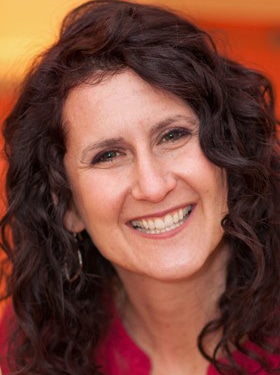by Denise Riebman
“Please enter your travel dates.” I have ruminated incessantly about my failure to solve this puzzle when I was a contestant on Wheel of Fortune this summer. If only I had figured it out, I would have won the trip, gone to the Bonus Round, and hopefully taken home thousands of dollars. But it wasn’t the money that kept me up at night (okay, maybe a little), it was thinking about how stupid I’d look to friends, family, colleagues, and those millions of strangers watching.
I discounted that I had been gutsy enough to apply, was selected from thousands, and solved two puzzles despite hitting Bankrupt A LOT. All I could fixate on was being judged for my failure to solve that puzzle. Shame can be relentless in its pursuit.
After writing about “career shame”—paths not taken, promotions not landed, and comparisons with more successful peers—I’ve discovered that it’s actually the small moments of “job shame”—public speaking blunders, journal article rejections, accounting mistakes—that incubate larger career shame. Unless we dispute the false beliefs spawned from job shame, they gain insidious power to negatively impact our careers.
Whether at work or as a Wheel of Fortune contestant, we each have a choice in those “fail” episodes: shame or growth.
Fight Against Shame
As part of our ancient survival mechanism, the brain stores painful moments in our long-term memory to protect us from future hurt. But, if we are able to pause and confront those shameful thoughts, in a way that works for our style of processing—talking, writing, thinking—our brains actually store the memory differently. By digging in to challenge false beliefs (Everyone will think I’m dumb because I didn’t solve the puzzle) and old stories (I am only liked because of what I accomplish, not who I am), we can even create new neural pathways. Instead of storing shame, we turn it into growth.
One of my coaching clients had been reprimanded for not meeting several deadlines, and now was ashamed and doubting her writing ability. After giving her time to vent, we used Appreciative Inquiry to differentiate a temporary setback from a pervasive problem, by recognizing times when she had met deadlines, received praise on her writing, and been successful. Next, we identified short-term strategies to improve her job performance and long-term career plan, including finding a position better suited to her strengths as a research-style writer rather than a rapid-fire communicator. Soon, her story changed from persistent humiliation to situational growth.
For the umpteenth time, I mentioned to my 16-year old niece how bummed I was that I hadn’t solved that puzzle. Wise beyond her years, she forcefully interrupted me, “Stop! You are awesome!” And with those four little words, I knew it was time to fight back again those persistent, fictitious stories about being defined by what I achieve, not by who I am. Did I want my niece to continue to see me as her Awesome Aunt who believes in herself or as the Shameful Aunt who was embarrassed about not solving one silly puzzle?
Do-Overs vs. Well-Being
No matter how many times I’ve played that scene over in my head, I cannot fly back to LA to beg Pat and Vanna for a Wheel of Fortune do-over. Despite our brain’s relentlessness in replaying scenes with a different ending, there are no do-overs at work or in life; our only choice is to move forward and do something new.
By flexing all of our strength muscles, we can fight the do-over mindset through cultivating a more expansive view of all our talents, rather than focusing on one mistake. The Reflected Best Self Exercise is a highly effective tool for identifying, leveraging, and magnifying our unique strengths, thereby opening us up to greater professional and personal well-being.
After listening to my do-over wishes, my sister (and mom of my wise niece) forcefully, yet lovingly, gave me a talking-to about how much I bring to the world, not because of what I’ve done but simply because of who I am. The missing piece in my emotional well-being puzzle, so to speak, was not a result of any momentary “failures” but rather a result of my fixation on them. Now, when my mind gets started on obsessive thoughts, I fight back by pausing to ask three simple questions: Is this helpful? Is this true? What else about me is true?
Sharing the Jackpot
After the show taped, I ran into the sister of the contestant who solved the “Please enter your travel dates” puzzle and won the trip. She shared that her brother and his husband had gotten married before the show but didn’t have a real honeymoon. If I had solved the puzzle, he would not have been able to introduce his husband on national television, and then take him on that honeymoon trip.
When we’re courageous enough to step onto the stage to spin our “Career Wheel of Fortune,” possibilities abound. Sometimes we hit Bankrupt, sometimes we hit the Well-Being Jackpot, and sometimes we get lucky enough to give others a chance to hit their Jackpot, too.
Denise Riebman is a career development specialist who applies a strength-based, positive psychology framework toward inspiring individuals to find career happiness. She is Director of Career Development and Alumni Services at George Washington University’s Trachtenberg School, and founder of CareerHappinessCoach.com. Denise holds a Certificate in Positive Psychology and additional certification from Global Career Development Facilitation, Presence-Based Coaching, and The Coaches Institute.










